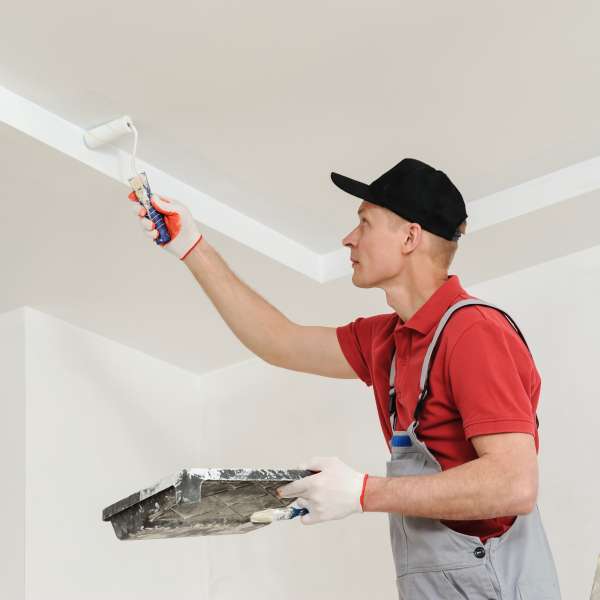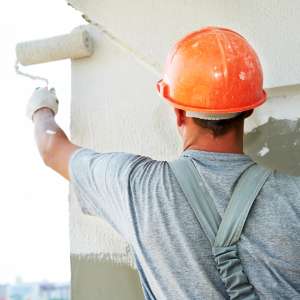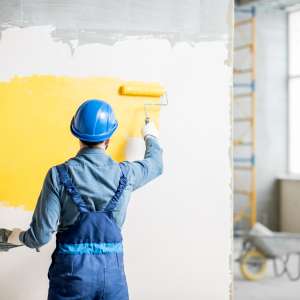
There’s more to being a commercial painter than simply brushing paint onto a surface. Professional painters must be able to assist clients in selecting paint styles and colours, must know how to prep surfaces for painting, do high-quality work that lasts, and clean up after themselves. As a professional painter or decorator, you may even need to perform some dry walling or industrial painting as well.
People who wish to pursue a career in the residential or commercial painting industry may need to attend professional painting classes and adhere to any licencing requirements before they can get a business off the ground. While there may not be official painting prerequisites in your state, many painters still choose to pursue an apprenticeship or complete a professional painting course to ensure that they are knowledgeable and trained in their skill.
Licensing
Depending on the state in which you operate, you may be required to obtain a painting contractor’s licence. Obtaining one might be as easy as filling out a registration form and paying a fee, or as complex as passing an exam to demonstrate your knowledge.
In certain jurisdictions, such as Arizona, you’ll just need to verify that you’ve worked for at least 24 months. Other states do not need painting contractors to be licenced, merely that they have the appropriate insurance. To learn about the requirements in your state (if any), try searching for “painter licence” and your state name or visiting your state or local government website.
Painting Courses for Professionals Overview
Although there is no specific national house painting training programme, many professional painters do complete a professional program at some point. There are a variety of painter courses available, whether you want to learn how to paint for the first time or you’re an experienced painter looking to improve your abilities with a professional class.
New painters have the option of completing an apprenticeship to get both hands-on and classroom experience from a painter professional school, or they may learn on the job by working as a painter’s apprentice. Since 2010, the EPA has required all home painters working on structures constructed before 1978 to obtain certification under the Renovation, Repair, and Painting Program (RRP).
The following topics are typically covered in painting classes:
- How to prepare a painting surface
- How to manage damp and moisture
- How to pick the proper paint for diverse weather and temperature conditions
- Paint colour selection and mixing
- How to use various glazes and finishes to generate varied effects
Even if you’re a seasoned painter, it may be worthwhile to take additional professional lessons from time to time. House painters can enroll in a painter master class to acquire additional qualifications. Expert certification in fields such as protective coatings is one example of this. Having a professional certification to present to potential clients could lead to more career opportunities and higher income.
Finding Professional Painter Courses
Painting classes at your local community college may be beneficial if you’re just getting started. Many technical universities also offer apprenticeship programmes for those interested in learning how to paint houses or commercial properties. You must be at least 18 years old, dedicated to completing the course, and pass a background check.
Because they demand distinct methods and technologies, you’ll need to determine whether you want to start with interior painting and decorating or exterior painting and finishing. Professional certificates are available from organizations such as the Society for Protective Coatings and the NACE International Institute, which include General Coating Certification and Protective Coating Specialist certification. Some of the certifications require you to take a painting course, while others only require you to have proven professional experience in the relevant field.
Protecting Your Business as It Grows
There are several painting courses available for both novice and experienced painters that cover all aspects of home painting. Because you don’t need any specific painting qualifications, you may begin as soon as you believe you’ve mastered the required abilities. A professional painting school may help you advance your career, enhance your confidence, and raise your profits if you’re searching for a competitive edge.
As your painting business grows, you may decide that insurance is necessary to help protect what you are building. General Liability and other forms of business insurance coverage shields your business against common risks that commercial painters often face.
Visit BizInsure to learn more about insurance for painters.



